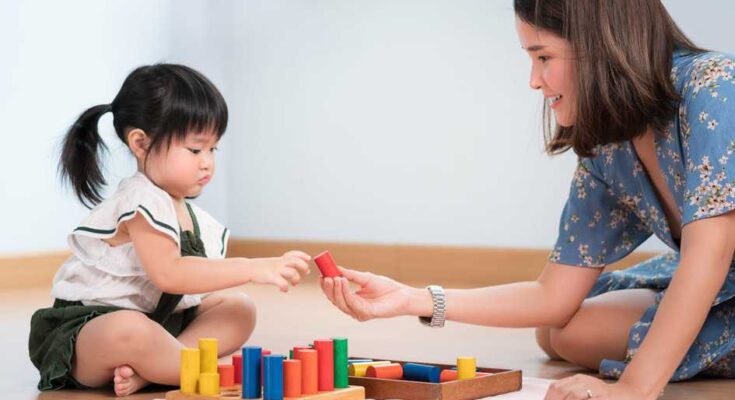Early childhood is a crucial period for cognitive development in children. During this time, their brains rapidly grow and form connections that lay the foundation for future learning and intellectual abilities. One effective way to stimulate cognitive development in kids is through early childhood education toys. These toys are meant to engage children in activities promoting cognitive skills, such as problem-solving, critical thinking, and creativity. This article will explore how early childhood play resources can aid in cognitive development and discuss their benefits.
Enhancing Problem-Solving Skills
One of the primary benefits of early education toys is their ability to enhance problem-solving skills in children. Toys such as puzzles, building blocks, and shape sorters require kids to analyse the problem, think critically, and find solutions. These activities help children develop logical thinking, spatial awareness, and the ability to identify patterns. As they engage with these toys, they learn to manipulate objects, experiment with different approaches, and develop problem-solving strategies that can be applied in various situations later in life.
Developing Fine Motor Skills
Fine motor skills involve coordinating small muscles in the hands and fingers. Early childhood play resources often involve precise hand movements, such as manipulating small objects, buttoning, and lacing. By engaging in these activities, children develop their fine motor skills, which are crucial in writing, drawing, and using tools. Using play resources like building sets and arts and crafts materials helps children improve their hand-eye coordination and dexterity, allowing them to perform intricate movements with greater ease.
Fostering Creativity and Imagination
Early education plays a vital role in fostering creativity and imagination in children. Toys that encourage imaginative play, such as dollhouses, pretend kitchen sets, and dress-up costumes, allow children to create narratives and explore different roles. Children learn to think outside the box through imaginative play, express themselves creatively, and develop storytelling abilities. This kind of play also helps children develop social and emotional skills by engaging in cooperative and pretend scenarios with their peers.
Promoting Language and Communication Skills
Toys designed for early childhood education often incorporate elements that promote language and communication skills. Examples include alphabet and number puzzles, picture books, and toys with recorded sounds or words. These play resources provide opportunities for children to learn and practice vocabulary, letter and number recognition, and basic language skills. As children engage with them, they develop their language abilities, expand their vocabulary, and enhance their communication skills, which are undoubtedly essential for successful social interactions and academic success.
Encouraging Memory and Concentration
Specific early childhood play resources, such as memory games and sequencing puzzles, can help children improve their memory and concentration skills. Memory games require children to remember the placement of cards or objects while sequencing puzzles challenge them to remember and replicate a specific order. These activities enhance children’s ability to focus, concentrate, and retain information. Through regular engagement with memory and sequencing toys, children strengthen their memory-related cognitive processes, which can benefit their academic performance and overall cognitive abilities.
Conclusion
Early childhood education toys offer a wide range of benefits for cognitive development in children. Children develop problem-solving, fine motor skills, creativity, imagination, language and communication skills, and memory and concentration abilities by engaging with these toys. They provide an interactive and engaging learning experience that supports children’s cognitive growth during their formative years. Parents, caregivers, and educators must choose age-appropriate play resources that align with the child’s developmental stage and interests. We can help children lay a solid foundation for lifelong learning and cognitive development by providing suitable childhood toys.



